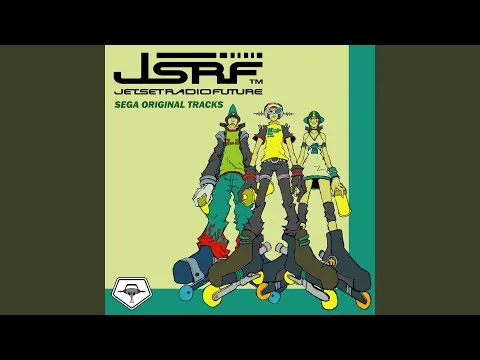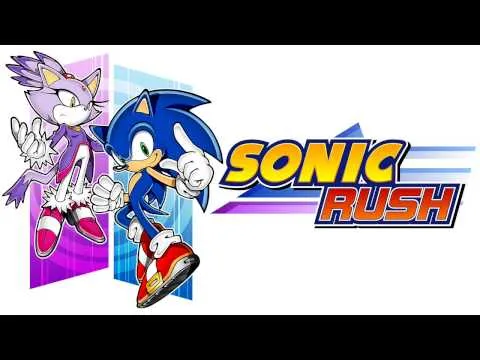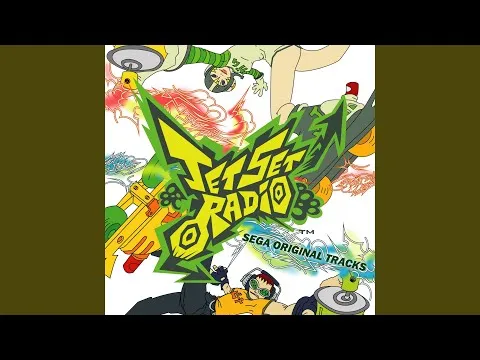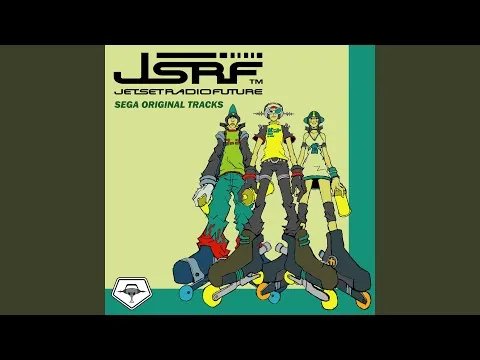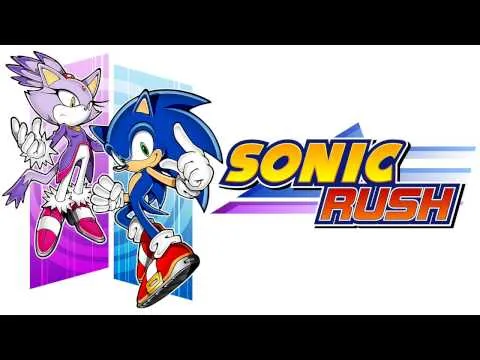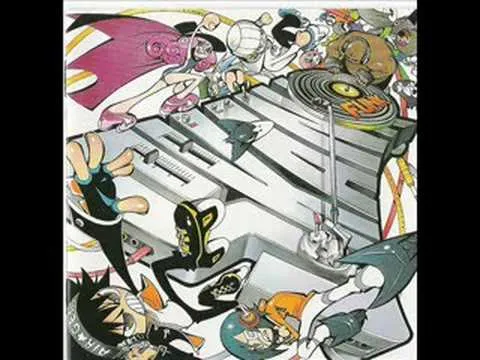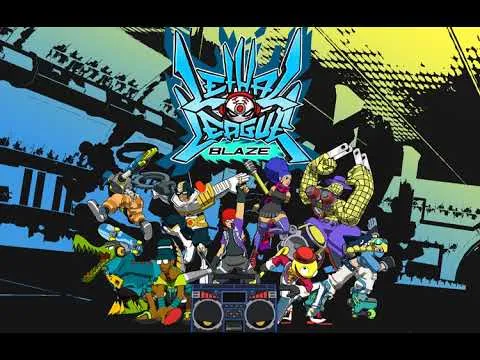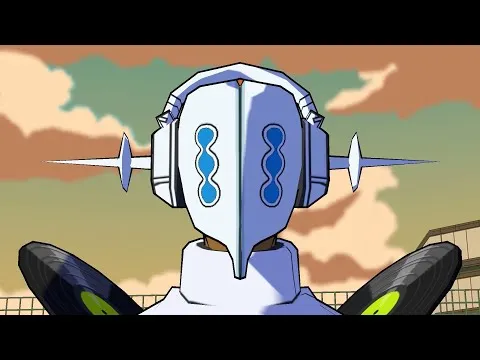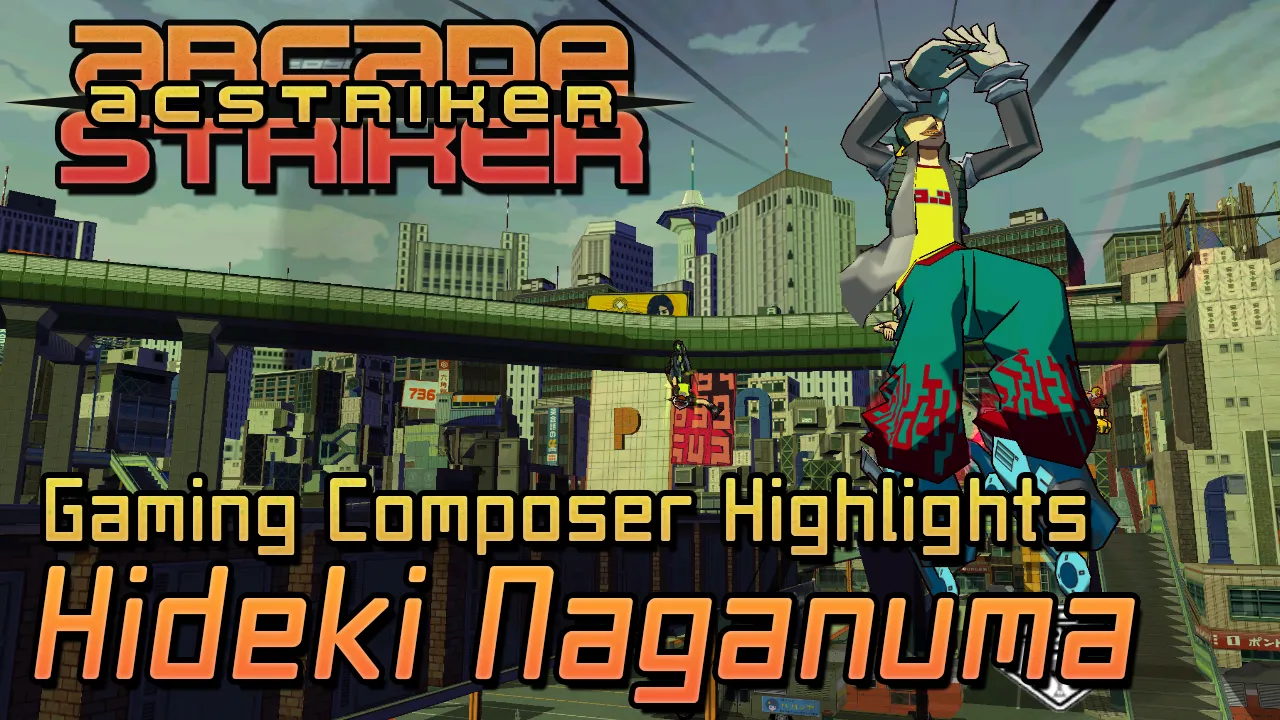

Today I wanted to try an idea that I had on my head for a good while: Writing about those special music artists and performers that have put their hands on heavy work to bring amazing music that fits like a ring for the games they are brought for (and take the opportunity to share some of their awesome music with you). The importance of music in a lot of games can end up being quite understated, as it can fuel the atmosphere inmensely from vast lands in ground or space and brooding dark medieval places, or enhance the gameplay-focused area with fun yet fitting tunes for the worlds, rocking tracks for high-paced action, or calm tunes for you to take your time during a relaxing game. While there are may ways that music can be used to enhance the inmersion or the gameplay, the idea is that increases your enjoyment (or depending of context, certain feelings...like inminent danger or a frightening feeling).
Now, why did I choose Hideki Naganuma as the first to be featured in these sections? It is quite simple: While I had many, many games to try out as a kid, one of the game soundtracks that impacted the most from the first time I heard it due to its uniqueness was from Sonic Rush, and from there, trying out the cool-looking Jet Set Radio where the soundtrack style was undeniably giving me the same vibes as Sonic Rush. Of course, the composer for both games (most of the tracks in JSR, the entire OST in Rush) was none other than him, and everything else that I found from him made me imagine a lot of cool stuff on my head as a kid, and after growing up, made me appreciate the uniqueness from his compositions and how well they complement the games they have been designed for.
While I've never been much about thinking on what "genres" certain soundtracks in games are due to how complicated that matter can be (aside from the more obvious ones to tell like rock and jazz), Naganuma's songs are definitely the most thought provoking on this idea since it is mostly agreed that he uses a fusion of SEVERAL genres along with a heavy usage of samples and ends up making music that really stands out. If anything, while the genres often thrown around that would come close are big-beat, electronica, hip-hop and funk, Naganuma's style is so particular that his compositions can be defined by his own name, and songs that are similar to this have been often called "songs that sounds similar to Jet Set Radio", as his involvement in that game was one of the most notable.
Jet Set Radio has been Naganuma's defining work not only in being the first game where he created this particular style of his own (he had composed on 3 games before this, but JSR was where he made his defining style), but also it complemented the game in an incredible way, having the perfect tunes for a game with such a striking visual art where you have to graffiti all over a city on skates, and jumping around with tricks. While he wasn't the sole composer for the entire game, he composed a good amount of tracks for it (including the main theme), and would once again have a pivotal role in the soundtrack of the sequel, Jet Set Radio Future.
After that, he composed the entire soundtrack for Ollie King, an arcade game from SEGA that had a similar cel-shaded style from JSR and thus benefitted from Naganuma's music. While it was not as widespread as JSR due to being an exclusive skateboarding arcade game (that unlike a lot of games that I've talked about, CAN'T be played through emulation yet), it is definitely worth mentioning with the groove and adrenaline infused as well as a couple of remixed JSRF tracks.
However, the next project where he got involved, Sonic Rush, was another creative high during his career, and an incredible fit for the hedgehog's first boost-infused installment. If anything, the music that Naganuma made for Sonic Rush happened to be a contributing factor to the game having an impressive identity when you get to play it along with the game being the most different in the franchise's 2D output history. And well, for all of the cases that I've talked about, even when listening them on their own instead of through gameplay, the cool factor from his compositions is just undeniable.
After this however, his involvement in video games decreased a lot, being way less active as a general composer and having composed multiple tracks for the last time for the two Kurohyo games, which are PSP spinoffs of the Yakuza franchise, Super Monkey Ball 3D, and an arcade game called Dead Heat Riders. However, he kept being stylish on the games where he went, and he still composed single tracks for several games and even having composed a few times for anime: Two tracks for Air Gear (one of them being the ending theme), and an uncredited remix for Gintama. On the note of credits, he was credited under the name of "skankfunk" in certain tracks for contractual reasons with SEGA for a couple of years.
Even though his input had drastically reduced from before (which might even be reasonable if you think about how much it must take him to compose this kind of music), the few times where he was showing up were still pretty remarkable due to the games or the tracks themselves. One of his most notable recent compositions, "AINT NOTHING LIKE A FUNKY BEAT", had a lot of visibility due to being featured in Lethal League Blaze, a sequel from the beloved Lethal League, and the fact that the game had huge visual inspiration from Jet Set Radio in cel-shading and stylization, making the song feel even more at home.
His actual most recent involvement in video game composing (and composing overall) has been in the in-development Bomb Rush Cyberfunk, which is not only being developed by Team Reptile (Lethal League devs) which already know how to make good work of the JSR-inspired artstyle, but also is a game that aims to follow up on what the franchise left on and what fans wanted from it, with huge cities and parkour where you have to own the city with graffiti. If anything, BRC is not only what JSR fans wanted for a long time (even if it is without SEGA), but also is going to feature at least a couple of tracks by Naganuma himself.
Hideki Naganuma has inspired a lot of people's creativity through his incredibly unique music, and was vital in the influence that Jet Set Radio (and Sonic Rush) had in many people around the world. If anything, the tracks that I featured here along as others like "Sweet Soul Brother", "Funky Dealer", "Back 2 Back", "A New Day", "Boarder 70", "LUV CAN SAVE U", and many others are songs that I still really like to listen every now and then. And if you somehow ended up hearing about his Twitter account, then you might already be familiar about how he is quite active there and keeping up with the internet culture of memes, but keeping a steady fanbase of followers that stay for admiration of his music works, his overall weirdness compared to what you would expect from a public figure and composer like him, and about how even to this day, still celebrates fondly the Jet Set Radio games along with fans over the world, and is pointed out by himself that while he isn't that known in Japan and SEGA refuses to bring back JSR, both him and JSR are really beloved internationally.
So that little detail is pretty odd, but more than anything, heartwarming, since you gotta think about how it feels to hear from himself that even if he isn't appreciated in the place where he came from, he knows that there are people around the world that appreciate him a lot and his compositions, myself included. And of course, if you'd like to see me talk about another particular composer for the next edition of these highlights, let me know in the comments!

Spanish translation with DeepL. All screenshots were captured by myself.
Español
Hoy quería probar una idea que tenía en la cabeza desde hace tiempo: Escribir sobre esos artistas e intérpretes musicales especiales que se han puesto manos a la obra para aportar una música increíble que encaja como anillo al dedo en los juegos para los que son traídos (y aprovechar la oportunidad para compartir con vosotros algo de su impresionante música). La importancia de la música en muchos juegos puede llegar a ser bastante subestimada, ya que puede alimentar la atmósfera inmensamente de vastas tierras en la tierra o el espacio y lugares medievales oscuros y melancólicos, o mejorar el área centrada en el juego con melodías divertidas pero adecuadas para los mundos, pistas rockeras para la acción de alto ritmo, o melodías tranquilas para que te tomes tu tiempo durante un juego relajante. Aunque hay muchas formas de utilizar la música para mejorar la inmersión o la jugabilidad, la idea es que aumente tu disfrute (o, dependiendo del contexto, ciertas sensaciones... como un peligro inminente o una sensación de miedo).
Ahora bien, ¿por qué he elegido a Hideki Naganuma como el primero en aparecer en estas secciones? Es muy sencillo: Aunque tuve muchos, muchos juegos que probar de niño, una de las bandas sonoras de juegos que más me impactó desde la primera vez que la escuché por su singularidad fue la de Sonic Rush, y a partir de ahí, probar el genial Jet Set Radio, donde el estilo de la banda sonora me daba innegablemente las mismas vibraciones que Sonic Rush. Por supuesto, el compositor de ambos juegos (la mayoría de los temas de JSR, toda la BSO de Rush) no era otro que él, y todo lo demás que encontré de él me hizo imaginar un montón de cosas chulas en mi cabeza de niño, y después de crecer, me hizo apreciar la singularidad de sus composiciones y lo bien que se complementan con los juegos para los que han sido diseñadas.
Aunque nunca he sido muy dado a pensar en qué "géneros" son ciertas bandas sonoras de los juegos debido a lo complicado que puede ser ese asunto (aparte de los más obvios de contar como el rock y el jazz), las canciones de Naganuma son definitivamente las que más hacen reflexionar sobre esta idea, ya que se coincide en que utiliza una fusión de VARIOS géneros junto con un fuerte uso de samples y acaba haciendo música que realmente destaca. En todo caso, mientras que los géneros que se suelen lanzar por ahí y que se acercarían son el big-beat, la electrónica, el hip-hop y el funk, el estilo de Naganuma es tan particular que sus composiciones pueden definirse con su propio nombre, y las canciones que se parecen a esto se han llamado a menudo "canciones que suenan parecido a Jet Set Radio", ya que su participación en ese juego fue una de las más notables.
Jet Set Radio ha sido la obra definitoria de Naganuma, no solo por ser el primer juego en el que creó este estilo propio tan particular (había compuesto en 3 juegos antes de este, pero en JSR fue donde hizo su estilo definitorio), sino que además complementaba el juego de una manera increíble, teniendo las melodías perfectas para un juego con un arte visual tan llamativo en el que tienes que grafitear por toda una ciudad en patines, y saltando con trucos. Aunque no fue el único compositor de todo el juego, compuso una buena cantidad de temas para él (incluido el tema principal), y volvería a tener un papel fundamental en la banda sonora de la secuela, Jet Set Radio Future.
Después de eso, compuso toda la banda sonora de Ollie King, un juego arcade de SEGA que tenía un estilo cel-shaded similar al de JSR y que, por tanto, se benefició de la música de Naganuma. Aunque no fue tan difundido como JSR debido a que era un juego arcade exclusivo de skateboarding (que a diferencia de muchos juegos de los que he hablado, aún no se puede jugar a través de la emulación), definitivamente vale la pena mencionar el groove y la adrenalina infundidos, así como un par de pistas remezcladas de JSRF.
Sin embargo, el siguiente proyecto en el que se involucró, Sonic Rush, fue otro de los puntos álgidos de su carrera, y un ajuste increíble para la primera entrega del erizo infundida por el impulso. En todo caso, la música que Naganuma hizo para Sonic Rush resultó ser un factor que contribuyó a que el juego tuviera una identidad impresionante cuando lo jugaste, además de ser el más diferente en la historia de la producción 2D de la franquicia. Y bueno, en todos los casos de los que he hablado, incluso al escucharlos por sí solos en lugar de a través del juego, el factor de frescura de sus composiciones es simplemente innegable.
Sin embargo, después de esto, su participación en los videojuegos disminuyó mucho, siendo mucho menos activo como compositor general y habiendo compuesto varios temas por última vez para los dos juegos de Kurohyo, que son spinoffs para PSP de la franquicia Yakuza, Super Monkey Ball 3D, y un juego de arcade llamado Dead Heat Riders. Sin embargo, siguió teniendo estilo en los juegos a los que acudió, y siguió componiendo temas sueltos para varios juegos e incluso ha compuesto algunas veces para el anime: Dos temas para Air Gear (uno de ellos el tema final), y una remezcla no acreditada para Gintama. En cuanto a los créditos, durante un par de años se le acreditó con el nombre de "skankfunk" en algunos temas por motivos contractuales con SEGA.
Aunque su aportación se había reducido drásticamente con respecto a antes (lo que podría ser incluso razonable si se piensa en lo mucho que le debe costar componer este tipo de música), las pocas veces que aparecía seguían siendo bastante notables debido a los juegos o a los propios temas. Una de sus composiciones recientes más notables, "AINT NOTHING LIKE A FUNKY BEAT", tuvo mucha visibilidad debido a que apareció en Lethal League Blaze, una secuela del querido Lethal League, y al hecho de que el juego tenía una gran inspiración visual de Jet Set Radio en el cel-shading y la estilización, haciendo que la canción se sintiera aún más en casa.
Su participación más reciente en la composición de videojuegos (y en la composición en general) ha sido en el juego en desarrollo Bomb Rush Cyberfunk, que no sólo está siendo desarrollado por Team Reptile (desarrolladores de Lethal League), que ya saben cómo hacer un buen trabajo con el estilo artístico inspirado en JSR, sino que también es un juego que pretende seguir lo que la franquicia dejó y lo que los fans querían de ella, con ciudades enormes y parkour donde tienes que ser dueño de la ciudad con grafitis. En todo caso, BRC no sólo es lo que los fans de JSR querían desde hace tiempo (aunque sea sin SEGA), sino que además va a contar con al menos un par de temas del propio Naganuma.
Hideki Naganuma ha inspirado la creatividad de mucha gente a través de su música increíblemente única, y fue vital en la influencia que Jet Set Radio (y Sonic Rush) tuvo en mucha gente de todo el mundo. En todo caso, los temas que presenté aquí junto con otros como "Sweet Soul Brother", "Funky Dealer", "Back 2 Back", "A New Day", "Boarder 70", "LUV CAN SAVE U", y muchos otros son canciones que todavía me gusta escuchar de vez en cuando. Y si de alguna manera terminaste escuchando sobre su cuenta de Twitter, entonces puede que ya estés familiarizado sobre cómo es bastante activo allí y se mantiene al día con la cultura de Internet de los memes, pero mantiene una base de fans constante de seguidores que se quedan para la admiración de sus obras musicales, su [rareza general](https://www.youtube.com/watch? v=N00-2eZ6ihM&ab_channel=HidekiNaganumaTweets) en comparación con lo que se esperaría de una figura pública y compositor como él, y sobre cómo incluso hasta el día de hoy, sigue celebrando con cariño los juegos de Jet Set Radio junto con los fans de todo el mundo, y es señalado por él mismo que mientras que él no es tan conocido en Japón y SEGA se niega a traer de vuelta JSR, tanto él como JSR son realmente queridos internacionalmente.
Así que ese pequeño detalle es bastante curioso, pero más que nada, reconfortante, ya que hay que pensar en lo que se siente al escuchar de él mismo que aunque no sea apreciado en el lugar de donde vino, sabe que hay gente alrededor del mundo que lo aprecia mucho a él y a sus composiciones, yo incluido. Y, por supuesto, si quieres que hable de otro compositor en particular para la próxima edición de estos destacados, ¡dímelo en los comentarios!

Traducción al español hecha con DeepL. Todas las fotos capturadas por mí.
